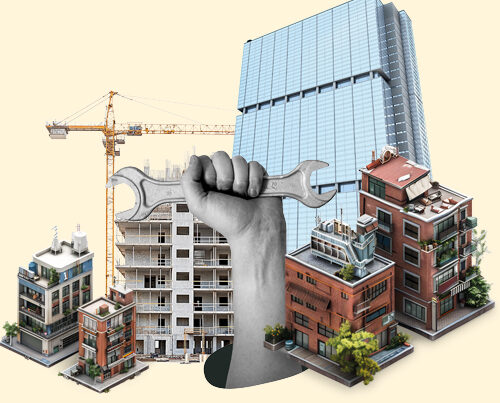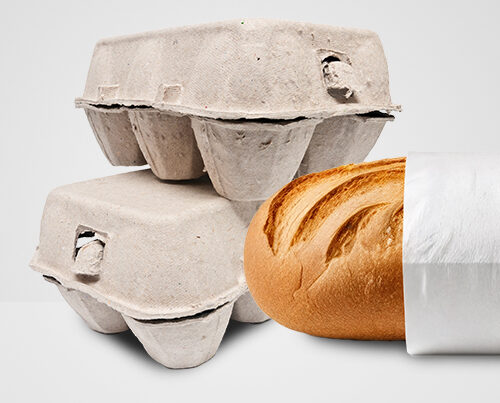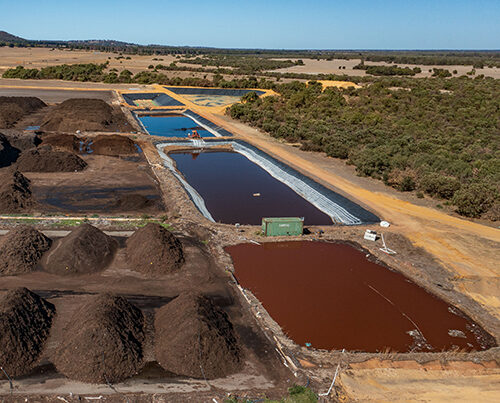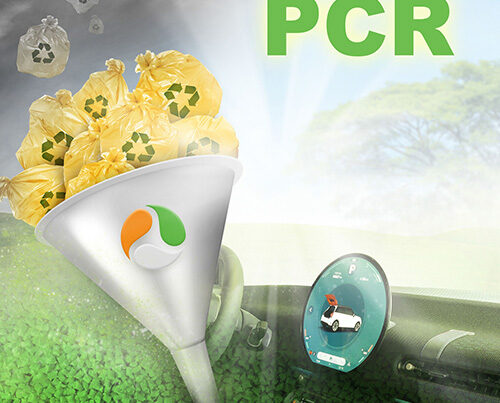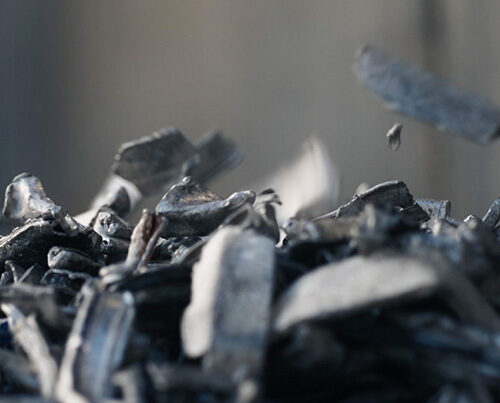Pierre Vasseur is Board Chair of REMONDIS Schweiz AG. We met up with him to talk about the current state and future outlook of the circular economy in Switzerland as well as about the Swiss population’s passion for collecting things.
RE:VIEWS: Mr Vasseur, as board chair of the business you are responsible for REMONDIS’ operations in Switzerland. Being an internationally neutral, landlocked country, Switzerland lives a little in the shadow of its EU neighbours. Could you give us a brief description of what the circular economy is like in Switzerland at the moment?
Pierre Vasseur: Switzerland has a very well established circular economy that closely follows EU legislation and is identical in many areas. It’s also oriented towards the waste hierarchy and prioritises the avoidance of waste. The Government, industry and the general public all work together closely to minimise waste and optimise the way resources are used. As the Swiss market is deregulated, it is compatible with the EU – something that enables strong collaborations to be created.
RE:VIEWS: According to the statistics, every person in Switzerland produces, on average, around 700 kilos of municipal waste. This is considerably more than their European neighbours as the EU average lies around 530 kilos per capita. What do you say to these figures?
Pierre Vasseur: Demand for raw materials and consumption are closely linked to the economic strength of a country and the purchasing power of its population. Both are quite high in Switzerland. But, as I mentioned before, Switzerland has a very well-developed waste management sector compared to others. Around 50% of all municipal waste is segregated into over 10 fractions and collected separately. This means we have very high collection and recycling rates.
RE:VIEWS: So the Swiss are very good at collecting and separating their waste.
Pierre Vasseur: Indeed, they are. Switzerland is a nation of collectors – and this can clearly be seen when it comes to waste. This is very noticeable with glass: they separate their old bottles according to colour so carefully that we have a collection rate of ca. 98%. They also separate their PET bottles, cans and tins according to type and then take them to their household waste recycling centre. A levy must be paid for general waste, either as a charge on refuse sacks or in advance via retailers, and this should encourage the population to separate and recycle their waste. There are, though, no nationwide deposit return schemes in Switzerland.
Our company wanted to make it easier for the public to be able to hand in their waste and so we introduced a self-service system at our household waste recycling centre in Wallisellen a while back. This can be used 24/7 and is proving to be very popular. In fact, we recently had around 35,000 visitors to the centre in just one month. People arriving outside our normal opening times can access the centre via our arm barrier system, which costs 5 Swiss francs a go. And we’ve seen again and again just how good people are at segregating their waste as the materials they drop off have been carefully separated according to type. We also record their number plate, though, when they drive through the entrance to prevent potential outthrow materials or misuse. That way people are less likely to do something that’s not permitted!
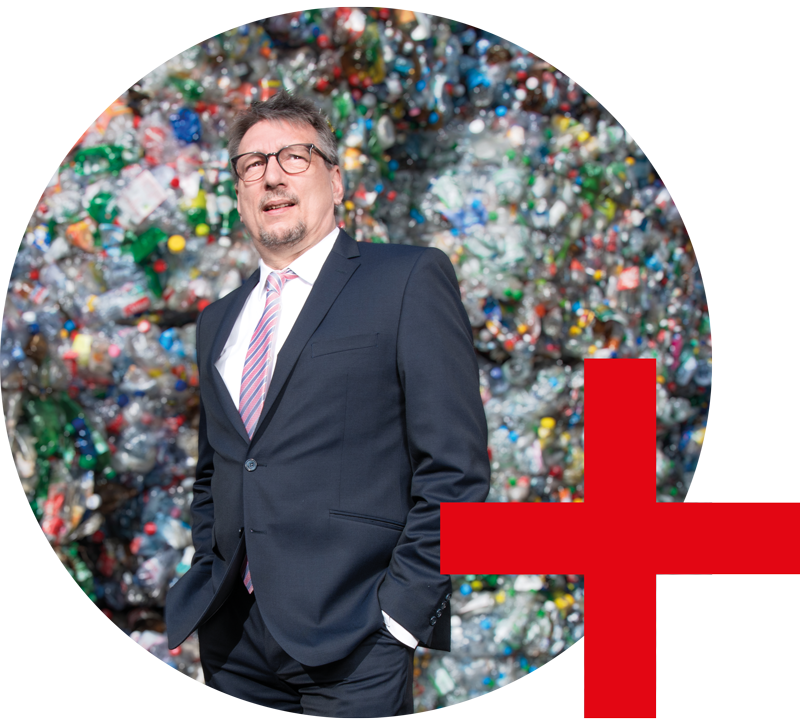
RE:VIEWS: You mentioned that there are no nationwide deposit return schemes in Switzerland. How is the circular economy implemented across the country then?
Pierre Vasseur: You need to take a look at our political system to understand that. Switzerland is a federal state made up of 26 cantons, some of which are sovereign cantons. The national government is responsible for putting together circular economy legislation, which the cantons and districts must then implement. This means that the things that are specified as national law can be interpreted and implemented differently. Sovereignty lies here with the cantons and the districts.
RE:VIEWS: Could you give us an example of this?
Pierre Vasseur: Yes, let’s take our waste stickers. The individual districts in Switzerland are responsible for collecting household waste. These waste stickers are labels from the respective district associations and are stuck onto the refuse sacks. The costs for collecting and recycling household waste are partly financed via these stickers and partly via taxes. The districts decide themselves what percentage is covered by the stickers and what percentage by taxes.
But, as is to be expected, there are some exceptions as well. Geneva is the only canton in Switzerland not to have introduced a waste sticker yet. The costs for collecting and recycling its waste are financed entirely via taxes. Geneva is unique in this respect.
RE:VIEWS: In Germany, there are over 10,000 public and private sector waste management firms responsible for ensuring that residual waste is disposed of or recycled using environmentally sound processes and that recyclables are recovered from private households, industrial businesses and commercial firms. How is the market set up in Switzerland?
Pierre Vasseur: All in all, the circular economy is very much compartmentalised in Switzerland with a large number of small companies and a wide range of services. At the end of the day, the country has around 3,600 districts that tender out individual waste management services to private sector firms or carry out the services themselves. That is a comparatively large number of districts considering the size of the population, which lies at approx. 8.7 million inhabitants*.
RE:VIEWS: Who is responsible for thermal treatment in Switzerland?
Pierre Vasseur: There are around 30 waste incineration plants in Switzerland and these are all run by the public sector, i.e. by the districts or cantons. Just one example: the individual waste regions of St. Gallen, Rorschach and Appenzell collaborate with one another here and run the St. Gallen waste incineration plant together. All mixed municipal waste is sent for thermal treatment in Switzerland and used to generate energy. The recovered energy is either used directly as heat or to produce electricity.
*By way of comparison: Germany had a total of 10,789 districts at the end of 2021
“Switzerland has a very well established circular economy that closely follows EU legislation and is identical in many areas.”
Pierre Vasseur, Board Chair of REMONDIS Switzerland
RE:VIEWS: Our waste-to-energy processes here in Germany generate slag and fly ash which can be recycled and reused. What does the law say about this in Switzerland?
Pierre Vasseur: Thermal treatment became even more important in Switzerland when the landfill ban was introduced here at the end of the 90s. The waste-to-energy process certainly generates residual materials that can be sensibly reused. At the moment, however, slag from these plants may not be used as a building material in Switzerland.
The situation is a little different when it comes to the recycling of the fly ash. The fly ash generated by the waste incineration process contains large volumes of heavy metals that should be returned to production cycles. While Germany stores fly ash below ground in salt mines as backfill material, Swiss legislators have been calling for filter ash to be treated since the beginning of 2021 so that these metals – in particular zinc – can be recovered.
It’s hardly profitable, though, for individual waste-to-energy plants to set up and operate their own fly ash treatment facility, especially if they are just a small waste incineration plant. Which is why Chiresa AG reacted in good time and drew up plans and built such a treatment plant in Full-Reuenthal. This facility is able to wash and process around 12,000 tonnes of fly ash from the region’s waste-to-energy plants every year. Once the materials have been recovered, the cleaned ash can then be sent to landfill.
RE:VIEWS: Could you give a quick summary of REMONDIS’ operations in Switzerland?
Pierre Vasseur: REMONDIS Schweiz AG has been operating in the country for over 25 years and we’ve been able to steadily expand and diversify our activities throughout this period. Being part of the REMONDIS Group has helped here as it has given us access to specialist international know-how from a whole variety of sectors.
In the meantime, we have exceeded the 100 million CHF turnover mark and are the no. 2 recycling business in Switzerland. Our seven branches and associated companies and their 300+ employees offer a wide range of services to commercial firms, industrial businesses and public sector clients. Our head office has been in Schaffhausen since 2007 and it’s from here that we manage all our services for our 8,000+ customers across the whole of Switzerland.

“All in all, I believe that Switzerland is well ahead of others and has a robust, well-organised circular economy.”
Pierre Vasseur, Board Chair of REMONDIS Switzerland
RE:VIEWS: And what are these services exactly?
Pierre Vasseur: Our portfolio has grown over the years. Its origin stretches back to 1976 when B. Spadin AG was founded as RETHMANN Recycling bought a share in this firm in 1994. Our original business focused on recycling camera film and x-ray film containing silver as well as other types of waste generated by the film processing industry. It may be true that digitisation has changed the analogue film business but investing in this company also gave us access to another important market: the medical sector. This sector continues to generate problematic waste that needs to be treated properly in line with all rules and regulations – something that is no easy task. We have gained extensive, in-depth knowledge of this field over the years and are able to offer our customers a wide range of services covering the collection, logistics and recycling of medical waste via our REMED brand.
We have moved into many other interesting fields of business over the years though. In 2006, for example, we extended our local waste management operations when we took over Urs Sigrist AG in Beringen. Also worth mentioning is the contract we were awarded by CDTS SA in 2009 to operate the hazardous waste incineration plant in the canton of Geneva. And REMONDIS Chemical Waste Services AG was founded in Schaffhausen in 2014. RECHEM helps well-known pharmaceutical, chemicals and industrial companies to dispose of their problematic waste.
In 2019, we then took over K. Müller AG in Wallisellen. This is where we also run the largest household waste recycling centre in Switzerland. And lastly we acquired Chiresa AG in 2022 – a move that has enabled us to offer an even wider range of hazardous waste services, including washing fly ash and cleaning rail tankers.
This quick look back at our history shows how compartmentalised the business is in Switzerland and how we have diversified over the years so that we can offer our public sector, commercial and industrial customers a bespoke, full package of solutions.
RE:VIEWS: Is there a particular field of activity that you believe will become more important in the future?
Pierre Vasseur: We want to drive forward the circular economy in Switzerland by providing innovative and sustainable solutions. We are, for example, now involved in dismantling lithium ion batteries at Chiresa AG. Our goal here is to give as many batteries as possible a ‘second life’, i.e. to reuse them in secondary applications. We believe there is a great growth potential here!

RE:VIEWS: If you were granted one wish for the future of the circular economy in Switzerland, what would it be?
Pierre Vasseur: All in all, I believe that Switzerland is well ahead of others and has a robust, well-organised circular economy. In fact, we’re already considerably more advanced in a number of areas compared to some EU countries. We can already see many recycling opportunities. Some private initiatives, for example, have set up collection schemes for plastics and these should be rolled out across the whole of the country in the future.
The set-up of our federal system, however, means that decisions are sometimes made too slowly and are implemented differently across the various cantons. In some cases, I would like to see more coordination between the individual actors as we should all be pulling together and further developing our circular economy together to promote sustainability.
Image credits: image 1, 3: Adobe Stock: Brilliant Eye; image 2, 4: © REMONDIS







